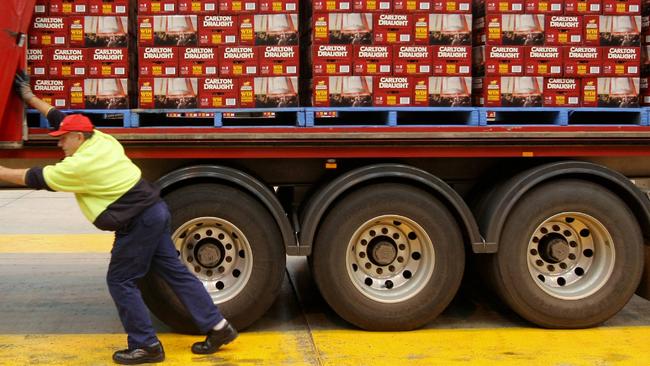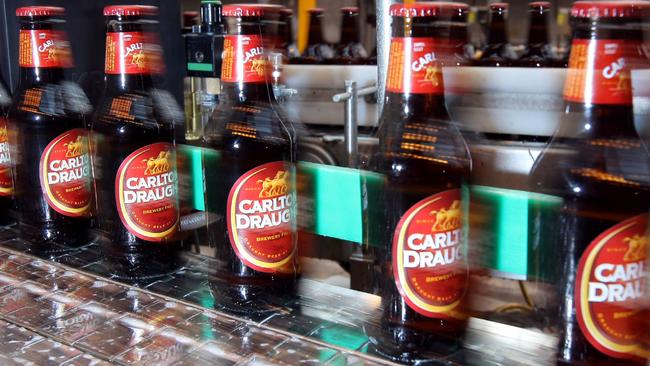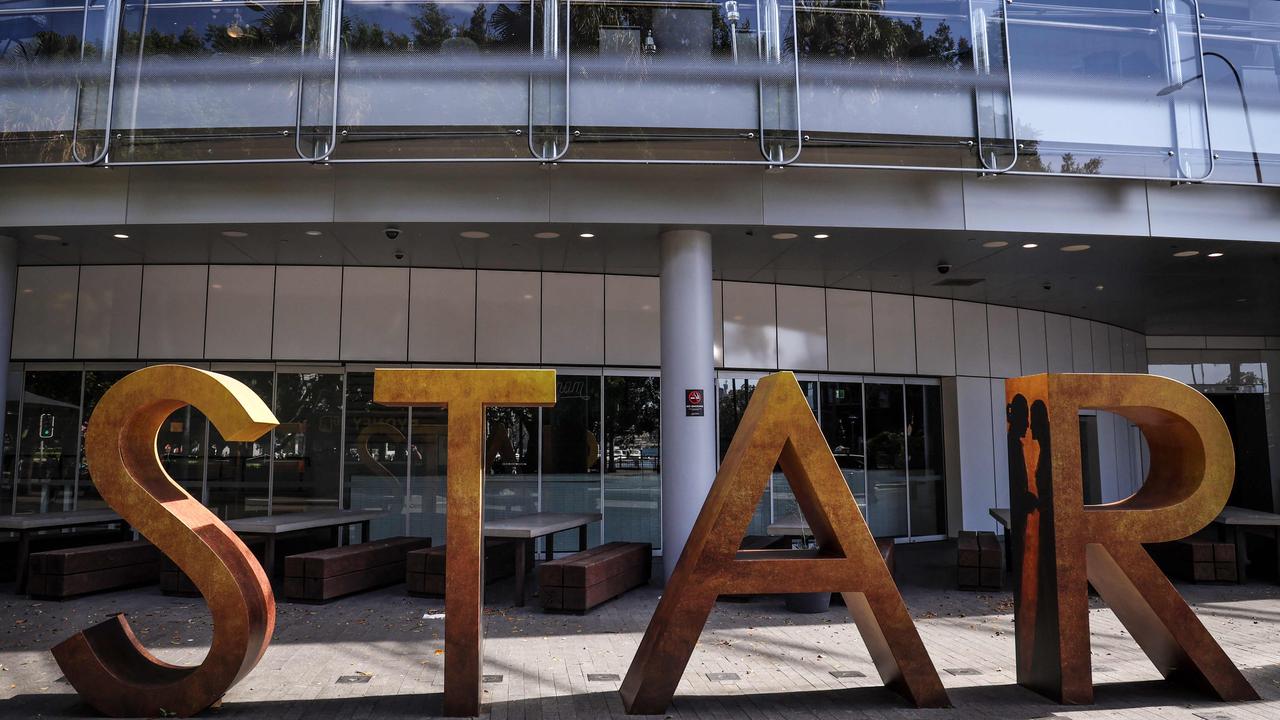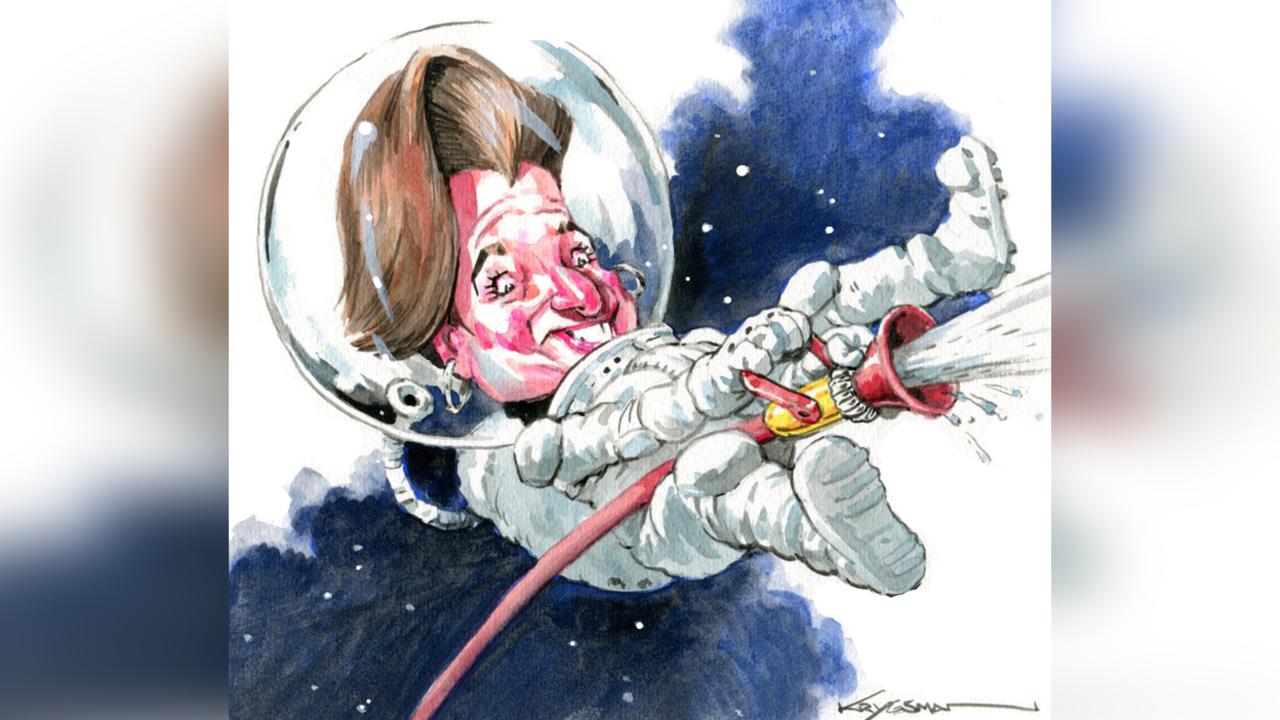VB owner AB InBev shelves $US10bn Asian listing

Global brewing giant Anheuser-Busch InBev SA called off the nearly $US10 billion ($14.2bn) listing of its Asian business, citing market conditions, scrapping what would have been the largest initial public offering of the year and dealing a setback to its efforts to pay down debt.
The Hong Kong IPO of the unit, which sells beers such as Budweiser, Stella Artois, Corona and Hoegaarden, had originally aimed to raise between $8.3 billion and $9.8 billion. Australia’s Carlton & United Breweries which owns brands including Foster’s and VB, formed a key part of the AB InBev's Asian business that had been slated for the IPO.
On Thursday, the Asian business had guided investors to expect it would price in the lower half of a previously indicated range, people familiar with the matter said.
The withdrawal highlights a contradiction in the global IPO market: While the US is red-hot, the same isn’t true for Asia or Europe, where activity is down sharply as a result of concerns about economic growth and trade tensions with the US.
AB InBev Friday said it would “closely monitor market conditions” while it evaluates its options.
This is the third-largest withdrawn IPO on record, according to Dealogic. It ranks behind the attempted $US10.1 billion listing of Spanish lottery giant Sociedad Estatal de Loterias y Apuestas del Estado SA in 2011 and insurer AIA Group’s first effort to go public in Hong Kong, in 2009, when it sought to raise $US10 billion.
The company could try to list again in Hong Kong, or on another exchange, though it would need to resubmit new listing documents with more up-to-date financial data.
AB InBev, which makes one out of every four beers sold worldwide, had said the listing would allow it to pursue deals in Asia and reduce its debt load, which stood at more than $US100 billion at the end of last year after a string of acquisitions. Chief Executive Carlos Brito said in May that the company could meet its debt-reduction goals with or without the Asia IPO.
For now, however, shelving the fundraising could make it harder for the unit to pursue regional deals, and for the parent to cut its huge debt pile, which stood at more than $US100 billion at the end of last year after a string of acquisitions.
Some investors and analysts said demand had been capped by the relatively high valuations that AB InBev was seeking. Also, once the brewer disclosed a price range, it couldn’t go outside that, according to Hong Kong market rules.
Alex Wong, a director at hedge fund Ample Capital, said his firm had subscribed for the IPO, but that AB InBev might have over-estimated investor appetite amid global economic uncertainty.
“It’s richly valued but given debt reduction is the key goal for AB InBev to do the spin-off, it certainly would not want to sell the unit’s stock at a cheap valuation,” he said.

Some bankers and investors said an absence of cornerstone investors made it more challenging to build a book of orders and to establish a viable offering price. Major Hong Kong IPOs are typically supported by cornerstone investors, who are big names such as sovereign-wealth funds, large institutional investors, tycoons, or state-owned enterprises.
They endorse a deal by committing to buy a fixed dollar amount of stock in an IPO, no matter where in the range it prices, and agreeing to hold on to the shares, usually for at least six months.
Budweiser Brewing Co. APAC Ltd. originally planned to sell nearly 1.63 billion new shares at an indicative range of 40 to 47 Hong Kong dollars ($7.28 to $8.56), valuing the unit at up to $US63.7 billion. Even at or near the bottom of the range, this would have been the world’s largest stock market debut this year by amount of money raised, eclipsing Uber Technologies Inc.’s $US8.1 billion share sale. Trading was slated to begin on July 19.
Euan McLeish, senior analyst for Asia-Pacific beverages at Sanford C. Bernstein, said a fair value for the stock was HK$42.50 a share, given its quality assets and diversified regional footprint. However, that price represents an enterprise value of 19.3 times earnings before interest, taxes, depreciation and amortisation in the next 12 months — an expensive-looking 65 per cent premium to the average for global brewers.
The development could be a bad omen for large share sales to come in Hong Kong, such as Alibaba Group Holding Ltd.’s potential listing in the city later this year.
This year has already been a disappointing one for new issues in Asia and Europe. Excluding Japan, $US28.1 billion has been raised in Asian IPOs so far in 2019, down 33 per cent compared with the same period last year, according to Dealogic. European activity is down 59 per cent. Earlier this past week, insurer Swiss Re AG suspended the London listing of a UK business due to weak investor demand.
By contrast, money raised in US IPOs so far this year is up 37 per cent, according to Dealogic, as public investors clamour for shares of fast-growing technology start-ups like Pinterest Inc. and Slack Technologies Inc.
While the AB InBev IPO could have been accomplished by setting a lower price range or by selling fewer shares, the company resisted, according to a person familiar with the offering. To find ample buyers for such a big deal can be challenging, the person said, and AB InBev lacked the big growth numbers offered by tech companies such as Alibaba, which raised $US25 billion in its 2014 IPO.
JPMorgan Chase & Co. and Morgan Stanley were the AB InBev deal’s sponsors, the most senior role for banks on a Hong Kong IPO. They were also global co-ordinators and bookrunners with Bank of America Merrill Lynch and Deutsche Bank AG.
AB InBev has struggled to cut into its debt as it grapples with challenging emerging markets and declining beer consumption in key regions. The brewer last year halved its dividend, sending its stock price tumbling.
Those troubles have weighed on the company’s results but in May it reported better-than-expected earnings as it works to diversify away from mass-market American lager.


